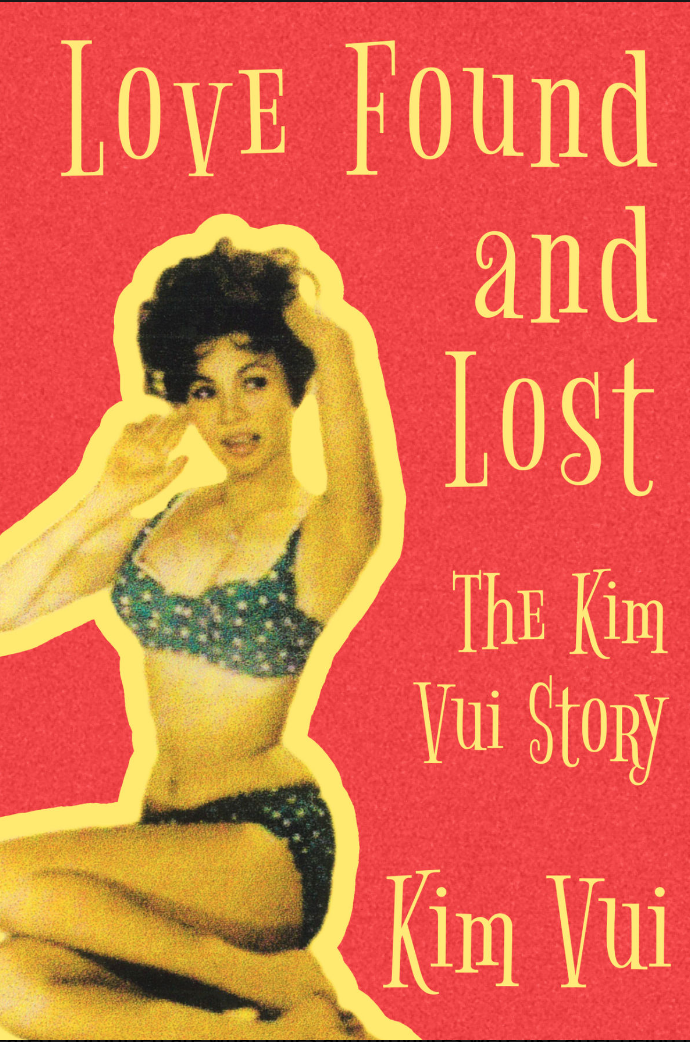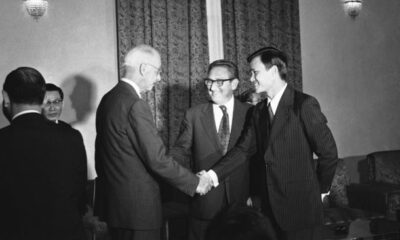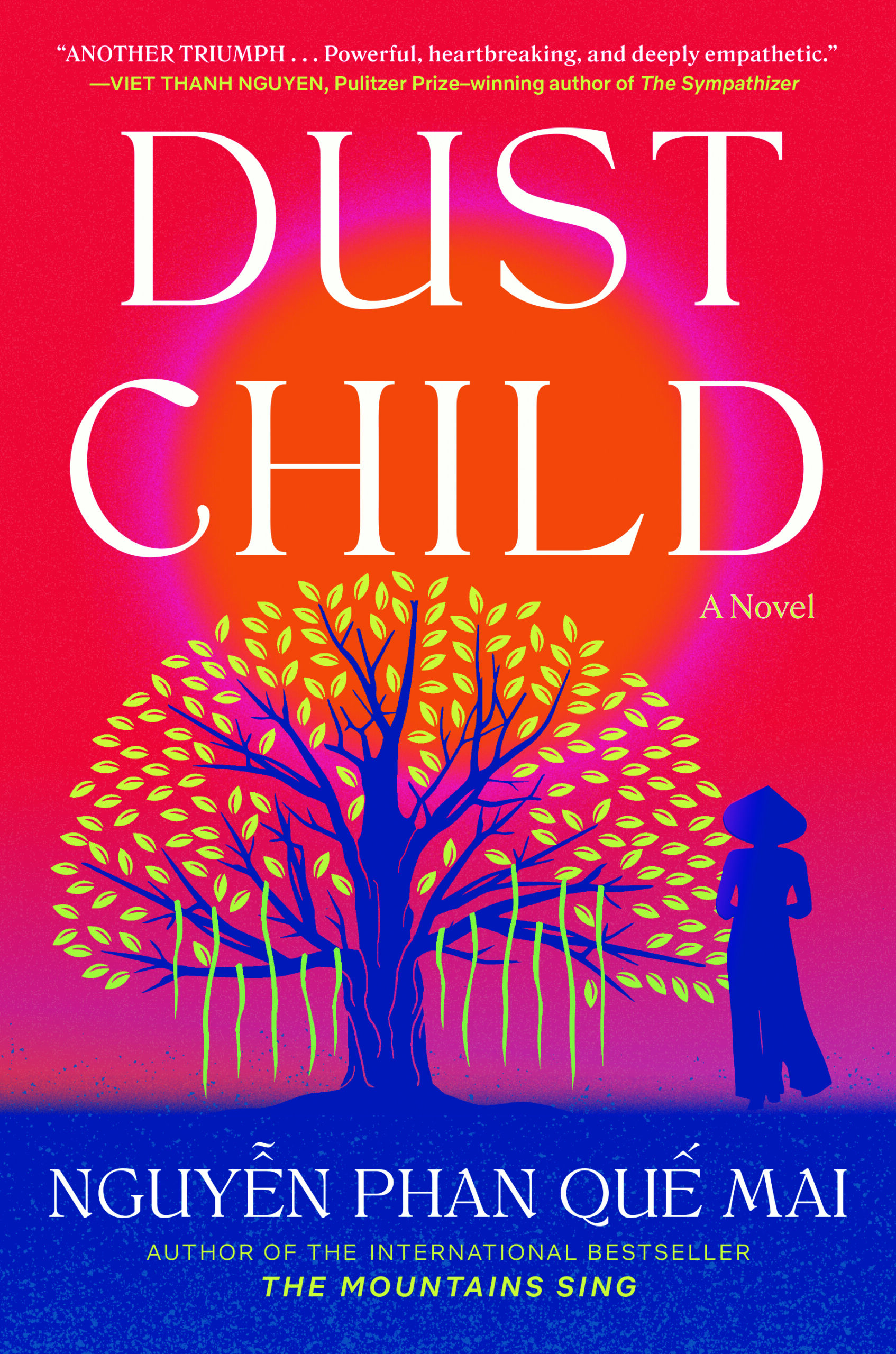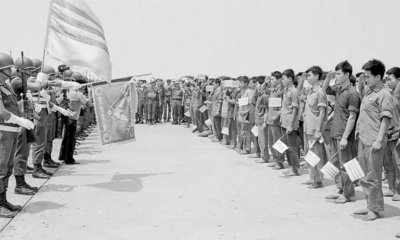Vinh Phu Pham
Saigon of the 1960s was a playground for politicians and artists alike. Amidst the political turmoil and the ravages of war, South Vietnam’s entertainment scene was a burgeoning industry that offered relief in an otherwise harsh reality. It was during this decade that stars like Trịnh Công Sơn, Khánh Ly, Hương Lan, Anh Bằng, etc… established themselves as staples of Saigon’s cultural sphere. Among them was the multi-talented, though less recognized starlet, Kim Vui. Née Nguyen Thi Vui in 1939 in Saigon’s Cho Lon, Vui’s life and memoir parallel that of the country’s tumultuous development throughout the longue durée of the twentieth century. Opening the fourteen chapter memoir with her family’s escape from Saigon in 1945 into the Mekong delta, Vui’s story traces every major event from the French re-occupation to the arrival of American troops, strikes, assassinations, the Tet offensive, the Fall of Saigon, and her eventual departure to American soil.

In Saigon, Vui established herself as the “Sophia Loren of Vietnam” singing in clubs, posing for advertising, and acting in films. Perhaps her most renowned work was playing the role of Lien, a Saigon club entertainer, in Lê Hoàng Hoa’s Chân trời tím (Purple Horizon) in 1971. Though the copies of film were eventually lost after 1975, it concretized her as one of the major celebrities of the RVN. Despite this, Vui career remains lesser-known compared to her peers because of familial duties, pragmatic constraints of the war, and the hard personal choices that she details explicitly.
Not unusual for the genre of memoirs about the war, this entry into the Vietnamese-American canon can, at times, read as another reductive recapitulation of all the political intrigue over which academics are still battling. What makes Vui’s perspective unique and interesting, however, was both her insider experience as an important entertainment figure, who often brushed shoulders with prominent members of South Vietnamese society, and her earnest, at times surprisingly intimate recount of her romantic life. As the title of the memoir suggest, love and lost are reoccurring themes that punctuate this star’s remarkable life. Indeed, here, love and war for Vui are as intricately intertwined as Vietnam’s complex relationship with the United States. From her failed marriage to a Vietnamese husband out of obligation to her tragic but romanesque relationship with an American military officer, Vui’s romantic encounters and duties to her family take center stage as Saigon spirals into chaos.

Readers will likely not walk away from Vui’s memoir with a different perspective on the war, and they should not expect to. After all, Vui herself makes no claim to being a historian and is rather humble about her insights, despite having been in proximity with the country’s ruling figures such as Ngô Đình Diệm and Nguyễn Cao Kỳ. Though her living situation was less than ideal at times, Vui’s tone remains reflective and hopeful throughout, rarely giving an impression of anger and resentment. Take, for example, this excerpt from the introduction where Vui writes:
I also lost my country. Of course, I don’t mean lost as in the sense of carelessly misplacing car keys, or that Viet Nam in any way disappeared. You can find it on a map. One can travel there. The Vietnamese people survive and endure, as they have in one form or another for two thousand years. But the Viet Nam of my childhood, of my life as a young woman, is no more.
Of the many emotionally charged writings about the period, this perhaps is one of the more heartfelt observations that does not attempt to reduce the loss of South Vietnam as the disappearance of Vietnam as a country and its peoples. In line with more recent academic perspectives, Vui’s assessment of the country’s history seems more akin to a series of misfortunes and deliberate decisions rather than an irredeemable historical tragedy.
To appreciate this memoir, it might be better situated as an entry-point into the oft overlooked entertainment industry of South Vietnam and the difficulty many women and mothers faced throughout this period. Vui’s own journey was a continual juggle between caring for her children and aging parents while also attempting to make a name for herself. Her father in particular was consistently brought up as a troubled adulterous figure, who often required her attention and resources. Not unlike other female icons of the time, from a young age, it was clear Vui’s physical beauty was a blessing in disguise. The same desirable attributes that helped launched her career were also placed her on a perilous path of stardom, which often boxed her as sexual object rather than serious performer. Well aware of this dynamic, Vui’s measures were calculated and strategic. Her direct account reveals how tightly-knit Saigon’s entertainment scene was with it’s government, where officers and officials look to female entertainers as both engineers of the nation-building projects while also behaving and treating these female entertainers as highly prized concubines. This is evident with the example of one foreign officer who would follow Vui to different shows making advances while ignoring her rejections.

Though not surprising in principle, Vui’s detailing of her awkward encounters ought to orient readers towards a different understanding of the difficulties women faced within the industry. Equally important, Vui’s story also offers a counterpoint to the simplified narrative of women’s lack of agency during the Vietnam war as passive figures. Nothing short of self-made, Vui was as much a business woman and strong mother figure as she was a songstress. Throughout the two-hundred or so pages, Vui continually emphasized how the tensions between personal ambitions and social duties are often in conflict. For Vui, a being a mother with dreams means that it was doubly hard, and it is the conscious balancing of the different pushes and pulls that, in retrospect, made her life meaningful and memorable. This memoir may not be for everyone, especially if they do not care for such intimate details of a celebrity’s amorous affairs, but it should in no way be overlooked if the desire is to gain a fuller image of South Vietnam’s entertainment industry of the 1960-70s.
To purchase Love Found and Lost is published by Texas Tech and can be purchased here.

 Politics & Economy3 years ago
Politics & Economy3 years ago
 Society & Culture4 years ago
Society & Culture4 years ago
 ARCHIVES4 years ago
ARCHIVES4 years ago
 Politics & Economy3 years ago
Politics & Economy3 years ago
 Politics & Economy4 years ago
Politics & Economy4 years ago
 Politics & Economy3 years ago
Politics & Economy3 years ago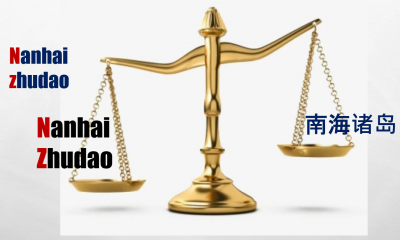
 Politics & Economy4 years ago
Politics & Economy4 years ago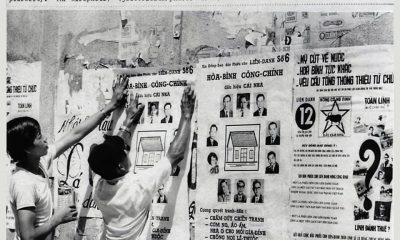
 ARCHIVES3 years ago
ARCHIVES3 years ago
